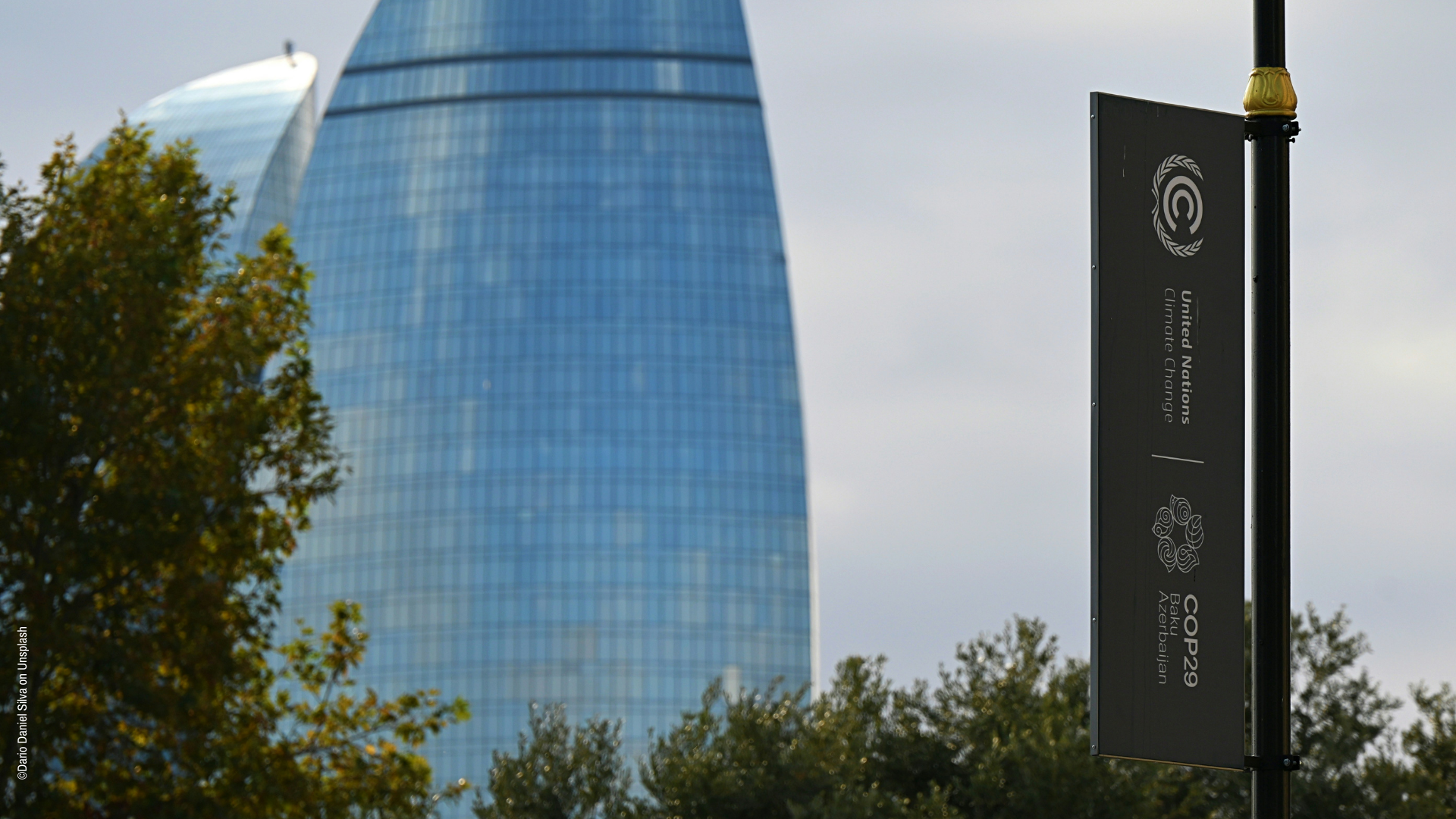Following the disappointing outcomes of the World Climate Conference in Baku, Azerbaijan, the FRFG is calling for a fundamental reform of the allocation process for future climate conferences.
This debate was sparked a year ago by an open letter from leading climate experts, initiated by the Club of Rome. Moving forward, it is essential to ensure that the annual World Climate Conference, a cornerstone for the future of humanity, is no longer hosted by oil-producing states. According to the International Energy Agency, 90% of Azerbaijan’s export revenue comes from oil and gas. At COP29’s opening in November 2024, President Ilham Aliyev lauded his country’s fossil fuel resources as “gifts from God.” Adding to the controversy, Saudi Arabia’s delegation was granted direct influence over the final negotiation text. Due to such lobbying and the chaotic nature of the proceedings, the compromise wording from Dubai’s COP28 regarding the “transition away from fossil fuels” was omitted entirely from COP29’s final documents.
From the FRFG’s perspective, this is a disastrous setback. Human CO2 emissions and atmospheric CO2 concentrations continue to rise unchecked, yet the root cause of climate change remains inadequately addressed. Without tackling the source, the financial burden of climate change—and the ongoing disputes over funding—will spiral out of control. While COP29 set an annual climate financing goal of $300 billion, scaling up to $1.3 trillion in the long term, this sum is likely to grow exponentially if climate damages remain unmitigated.
The FRFG is advocating for the establishment of a permanent headquarters and secretariat for the COP process in Brazil, starting with COP30. This would end the current rotation system, which shifts the conference across continents each year. Brazil, a democratic nation in the Global South, is home to vast rainforests and plays a crucial role in the planet’s climate system. Moreover, precedent already exists: the mid-year climate negotiations under the UN Framework Convention on Climate Change (UNFCCC) have long been held in Bonn, Germany. Arthur Kiessling, FRFG Ambassador and a participant at both Bonn and Baku, emphasises the need for reform: “The current process must change. The presidency of the host country is far more than a ceremonial role—it has substantial influence on the final negotiation outcomes, often reflecting its own economic and geopolitical interests.”
While the FRFG acknowledges the flaws in the current COP process, it strongly opposes abandoning it altogether. The climate crisis is a global issue that demands a multilateral approach. An annual conference like COP ensures that the countries most affected by climate change remain visible in the global spotlight. Thus, while the COP must continue, it must do so within a framework that better supports meaningful progress.
The urgency of climate action leaves no room for complacency. It is time to adopt a format that promotes consistent annual reductions in CO2 emissions, rather than allowing vested interests to obstruct progress. While fossil fuel states must remain part of the negotiations to ensure global cooperation, a permanent secretariat in Brazil would mitigate their disproportionate influence.
For an in-depth look at COP29, check out the latest episode, “Negotiating Tomorrow: COP29’s Impact on Intergenerational Fairness,” of the English-language FRFG podcast Host and FRFG project manager Lena Winzer speaks with Arthur Kiessling, who represented the FRFG at COP29. Together, they unpack what really happened behind the scenes, exploring topics such as the financing gap, progress in methane reduction, and the ongoing challenges of fossil fuel dependency. Available now—wherever you listen to podcasts.




